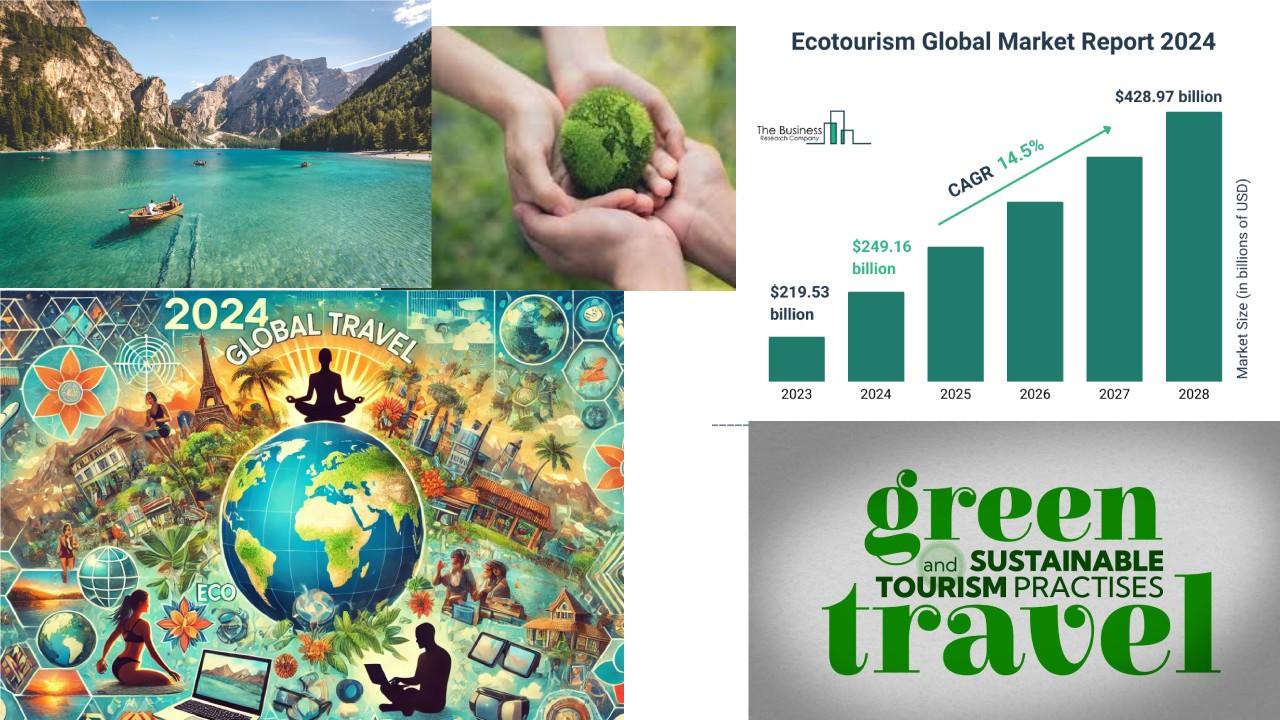
This increasing environmental consciousness will increase travel toward sustainability and eco-tourism. This trend is seen as the best way to take travelling combined with sustainability to a larger dimension and will grow even more powerful in 2024 through an increasing demand from travelers themselves as well as a commitment from the tourism industry to reduce its ecological footprint.
Here’s a closer look at the eco-tourism trends shaping 2024, how they promote sustainable travel, and what it means for tourists and businesses alike.
What is Eco-Tourism?
Eco-tourism, or sustainable tourism, focuses on minimizing the negative impacts of travel on the environment while enhancing cultural and natural heritage preservation. It involves activities that respect local communities, conserve ecosystems, and educate travelers on sustainable practices.
In 2024, the niche market of eco-tourism has become a global movement that is changing the ways destinations and businesses operate.
Top Eco-Tourism Trends in 2024
1. Carbon-Neutral Travel Experiences
Travelers are increasingly seeking carbon-neutral or low-carbon options. Airlines are investing in sustainable aviation fuels (SAFs), while hotels and tour operators are offering carbon offset programs.
For instance, websites such as Ecolodge Finder enable travelers to book lodges run on renewable energy sources and built with sustainable materials. It also encourages the traveler to participate in activities such as reforestation or purchasing carbon credits while traveling.
2. Slow Travel is on the Rise
The concept of “slow travel” is quality over quantity. It advocates for longer stays in fewer destinations to minimize emissions that result from traveling. Slow travel is often done using eco-friendly transportation like trains, bicycles, or walking.
Rail tourism is on the rise in Europe. Eurail offers services for scenic and sustainable train journeys.
3. Eco-Friendly Accommodation
From treehouses in the rainforest to solar-powered desert camps, eco-friendly accommodation options are flourishing. These establishments aim to leave a minimal environmental footprint while offering unique, immersive experiences.
Some key features of these accommodations include:
Renewable energy sources (solar or wind).
Water conservation measures (e.g., rainwater harvesting).
Locally sourced food to reduce food miles.
Waste reduction practices like composting and recycling.
4. Community-Centric Tourism
Eco-tourism in 2024 puts local communities at the heart of travel experiences. The tourist is now more interested in visiting places that have direct economic benefits to the residents.
Some examples include cultural exchanges, local craft workshops, and guided tours led by indigenous people. This approach ensures that tourism uplifts rather than exploits local communities.
5. Wildlife Conservation Initiatives
Eco-tourism focuses on protecting biodiversity. Wildlife-focused tours have learned to adopt ethical practices and avoid animals and their habitat disruption activities.
While visiting wildlife reserves, tourists can take part in habitat restoration projects and join conservation programs. Consider the destinations like Costa Rica and Kenya, which are exemplary in rendering services by offering safaris and jungle tours while advocating sustainability.
6. Destination and Business Green Certifications
Such certifications as Green Key and EarthCheck assist travelers to be able to find the genuine sustainable choices. In 2024, even more destinations and businesses will have had such a chance to gain it by strictly meeting the criteria concerning environmental and social responsibility.
To travellers, looking for these credentials ensures that their choice follows the principles of eco-tourism.
Advantages of Eco-Tourism
For the Environment
Protection of ecosystems and wildlife.
The reduction of greenhouse gases
Preservation of natural landscapes and resources.
For Local Communities
Economic growth through sustainable sources of income.
Promotion of cultural heritage and traditions.
Educational opportunities for local populations and visitors.
For Travelers
Authentic and enriching experiences.
Connection with nature and local cultures.
Opportunity to contribute positively to global sustainability efforts.
Tips for Travelers to Embrace Eco-Tourism in 2024
Choose Eco-Friendly Transportation: Opt for trains, buses, or electric vehicles instead of flying whenever possible.
Support Local Businesses: Eat at locally owned restaurants, buy souvenirs from artisans, and hire local guides.
Pack Responsibly : Bring reusable water bottles, shopping bags, and cutlery to cut down on single-use plastics.
Respect Local Cultures: Try to learn local customs and practice them accordingly.
Leave No Trace: Respect the “leave no trace” principle, not leaving your travels hurting the surroundings.
Destinations to Watch in 2024
1. Iceland
Iceland remains a number one eco-tourism destination with geothermal energy and landscapes that have not been desecrated. The tourists will be able to enjoy hot springs, volcanoes, and waterfalls while contributing to the sustainable tourism ventures.
2. Bhutan
Bhutan has taken the lead in Gross National Happiness instead of GDP. The country charges a daily fee for sustainable development to have high-value, low-impact tourism.
3. Costa Rica
A forerunner in eco-tourism, Costa Rica has rich rainforests, eco-lodges, and abundant wildlife. Its expansive national park system is an example for others to follow.
4. New Zealand
New Zealand, with its Tiaki Promise challenging tourists to take care of its environment, leads the pack of responsible travel. Activities include eco-friendly hiking and whale watching.
Challenges Ahead for Eco-Tourism
Though promising, there are still many challenges in store for eco-tourism:
Overtourism: Even eco-tourism may stress fragile ecosystems if it is not managed well.
Greenwashing: Some businesses may mislead travelers by pretending to have eco-friendly credentials.
Expensive: Sometimes sustainable travel alternatives are costlier, thereby not accessible.
A solution to these problems would only be achieved through collective action from governments, businesses, and travelers.
Conclusion
Eco-tourism in 2024 is not a travel trend but a shift to sustainable living. Travelers can enjoy fulfilling experiences while preserving the environment for future generations by embracing eco-friendly practices and prioritizing the planet.
As you plan your trips in 2024, be conscious of exploring the world sustainably. Remember that every small step contributes to a greener future.






